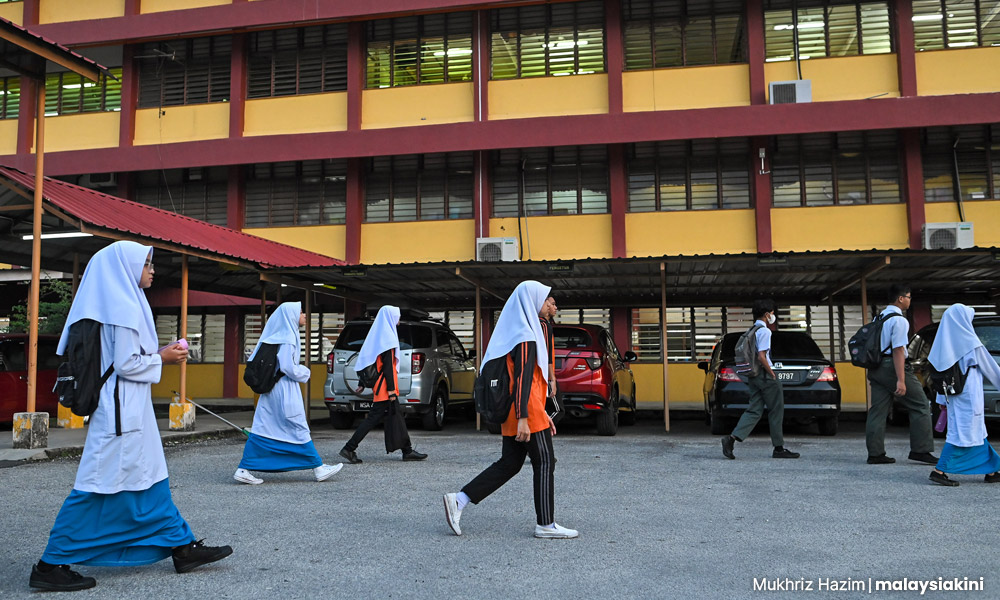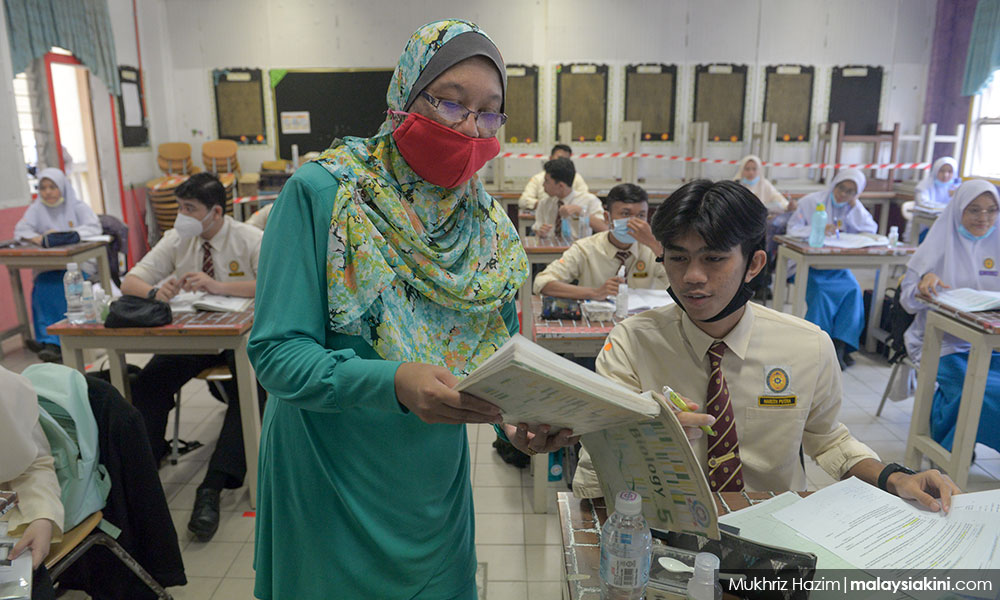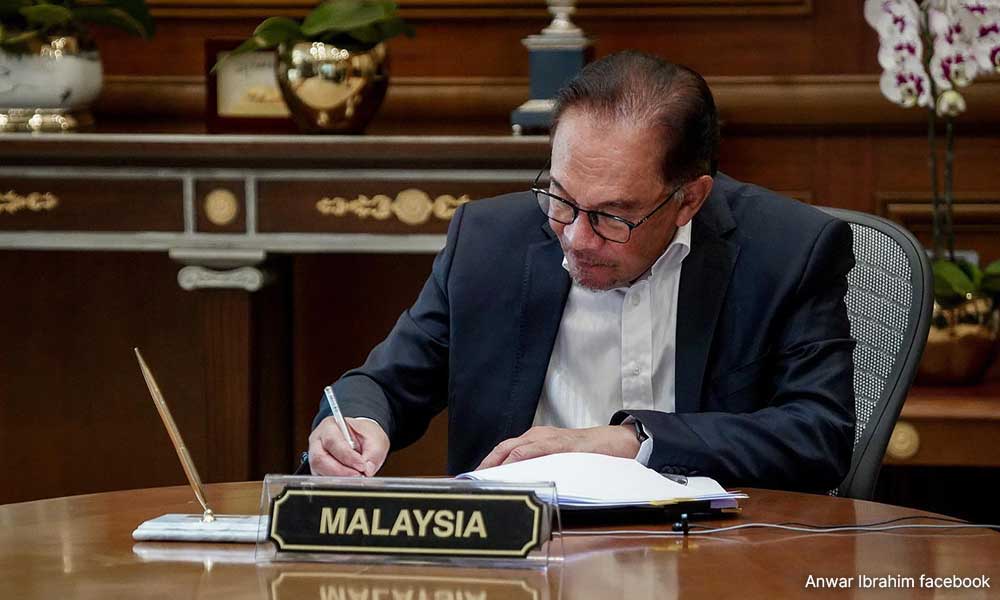A few years ago, a good friend of mine, Leong, was teaching at a private school in Selangor when he overheard a group of his 15-year-old students grumbling about not being heard by their school management.
Upon talking to them, he understood that the students were unhappy with certain rules and the way things were managed at the school. So, he encouraged them to reach out to the teachers and school management to express their thoughts and feelings.
The students assured Leong that they had tried to do so, however, all their complaints went to deaf ears. The students even took the initiative to write about these matters in the school magazine, hoping for a healthy discourse among the students, teachers and school management.
Unfortunately, every written article for the school magazine had to go through a filtration process by a teacher in charge. And so, the students’ criticisms never made it to the final draft of the magazine.
Teaching English Language and Global Perspectives at the time, Leong decided to use his role as an educator and a true believer in freedom of speech, to do something about it.
He came up with a term project for his students, to create their very own newspaper. The students themselves decided on the name of their newspaper and the roles they would be playing, whether it was as an editor, sub-editor, writer or photographer.
Using templates that were easily accessible online and with guidance from Leong, they started collecting content for their first edition. Upon completing the task, Leong funded the cost of printing the first fifty copies of the newspaper, on A3-sized paper.

The first edition of the newspaper was then distributed to students from other classes. Their initiative was fruitful, and the copies were snatched like hotcakes, thanks to their explosive cover story.
The right to speak out
The cover story of the first edition questioned the school’s policy of allowing teachers to collect money from students in order to celebrate Children’s Day. It went on to criticise the teachers for purchasing way too many bottled drinks and snacks, and bringing the leftovers home without even offering them to the students who funded the event in the first place.
The story went on to talk about how this was a common practice at the school and brought up other celebrations over the years. It raised the question of why students were expected to fund an event to celebrate themselves when teachers were not expected to fund a Teacher’s Day celebration.
It also questioned the teachers’ intention of collecting more funds than necessary, resulting in them purchasing more items than needed. It asked if this was a mistake in budgeting or simply pre-planned to benefit the teachers.

The story also offered a few suggestions to teachers and school management for future celebrations. Amongst all, it urged the management to fund all school events and supervise the budgeting process to avoid waste.
The cover story caught fire very fast. Many students began talking about it and parents who read the copies brought home by their children became aware of the story.
Obviously, some teachers were not too happy with the unapproved reading material circulating in the school and took the matter up with the school management. In the end, Leong and the student editorial team were summoned to the office.
During the meeting, Leong defended his students’ rights to voice their opinions and criticise the school in a positive manner. He stressed the importance of acknowledging that there is always room for improvement in school management and accepting criticisms from students in order to offer a better learning environment.
The meeting resulted in the school management endorsing the future circulation of the newspaper. However, it was made compulsory for the editorial team to seek feedback from the school regarding any complaints before publishing a story.
Leong and his students were happy with the outcome, and so was the school management. In the following editions, stories featured by the newspaper continued to assist the school management in understanding internal issues faced by its students.
Leong successfully taught his students three important lessons during the term – first, freedom to criticise is a hallmark of democracy; second, everyone has a responsibility to put in the effort to right the wrong; and third, always choose the right way to criticise and handle a problem.
‘Free to express views, criticise government’
Earlier this month, Prime Minister Anwar Ibrahim told reporters that students should be free to express their views and criticise the government in order to nurture critical minds. However, he advised that criticism must be done through a reasonable discourse.

I wholeheartedly agree with Anwar. In fact, this is exactly what Leong has taught his students. Unfortunately, not many educators empower their students to be vocal about matters important to them. Even worse, our education system does not champion this.
In our public schools, it is a norm for teachers to train students to follow as told and not to speak unless allowed to do so. Students who have much to say are usually silenced and put in their place. This has been the practice for donkey years.
The sad thing is, even the education system does not offer any room for students to have their own opinion. After all, our system only encourages a spoon-feeding mentality.
I remember, when my son was sitting for his SPM examinations a few years ago, his History teacher warned him and his classmates never to criticise the prime minister or the government if they wished to score the KBAT section of the SPM History paper. The students were told to write everything positive instead.
KBAT (Kemahiran Berfikir Aras Tinggi or Higher Order Thinking Skills) often tests SPM candidates on their opinions regarding the leadership of the country and the roles played by the government. Oddly enough, even subjective questions (like KBAT) set to test students’ thinking skills, came with expected answers.
So, you see, our entire public education system is set up to shut our students from speaking up, from having their own views, from criticising, from knowing the right manner to share their views.
Recently, two secondary students were arrested by the police after using vulgar words to criticise those who set the SPM History paper on a 36-second video on social media. Sadly, instead of educating them on the proper way of channelling their criticism, a teacher lodged a police report against them.
I don’t know what is the basis for the arrest but it is sad to see the teenagers, who are products of our public education’s spoon-feeding system, be held responsible for not knowing any better. - Mkini
FA ABDUL is a multi-award-winning playwright and director in the local performing arts scene, a published author, television scriptwriter, media trainer and mother. Her ultimate mission in life is to live out of a small suitcase.
The views expressed here are those of the author/contributor and do not necessarily represent the views of MMKtT.




No comments:
Post a Comment
Note: Only a member of this blog may post a comment.